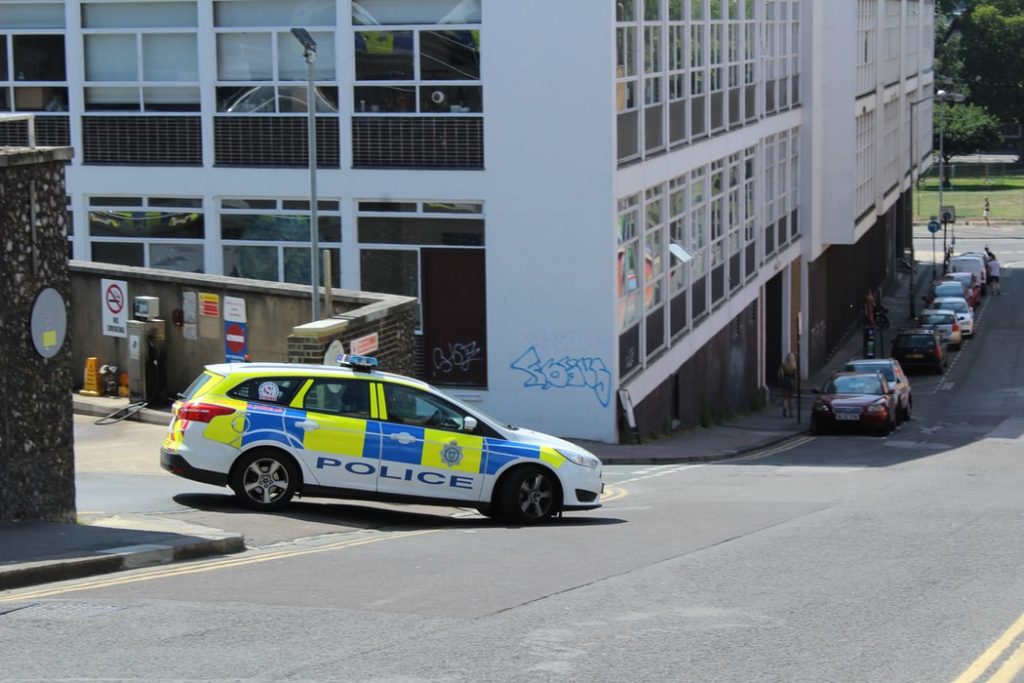Have you recently been issued with a notice of intended prosecution? If so, don’t worry, this article explains everything you need to know about a notice of intended prosecution and how you can defend against a prosecution.
If you have recently received a notice of intended prosecution and want legal advice, we can help. Get in touch today on 020 3795 9020.

What is a notice of intended prosecution?
In short, a notice of intended prosecution is a letter from the police that informs you that they are considering prosecuting you for a driving offence. When you receive a notice, it does not mean the prosecution will necessarily happen. It is simply to notify that the police may take action.
Please note, the police are legally obliged to notify you within 14 days of the alleged offence. If the police do not meet the legally obligated time frame it may provide a criminal defence.
How will you receive a notice of intended prosecution?
Typically, you can expect to receive a notice of intended prosecution on the spot by the police after an alleged driving offence or via the post.
Please note, if the notice is sent to you by post, it should contain the following details:
- The details of the driving offence (e.g. speeding)
- The time & date of offence
- The vehicle alleged to be involved
- The location of the alleged offence
The most common reasons you might receive a notice of intended prosecution
The most common reasons you may receive a notice of intended prosecution include:
- A speeding camera has caught you exceeding the speed limit.
- The police have caught you driving through a red traffic light.
- The police have witnessed you driving far below the required standard.
- You’ve been caught by the police driving carelessly.
- You’ve been caught by the police using your mobile phone whilst driving.
If you have been subject to any of the above, you will likely receive a notice in the post if the police have not stopped you.
It’s important to note that if you receive a notice, it must arrive within 14 days of the date of the alleged incident to be valid. If it comes later, a lawyer may be able to defend against the original offence.
Have you recently recevied a notice of intended prosecution? If so, we can help, just give us a quick call on 020 3795 9020.
Do I have to respond to a notice of intended prosecution?
In short, yes!
You have a legal obligation to provide the requested information within the 28-day time frame of receiving the notice. If you don’t respond or respond outside of the time frame, you may be subject to a separate criminal offence of failure to provide driver information. This criminal offences carries six penalty points and a fine.
If you fill in and send back the notice of intended prosecution confirming that you were the driver at the time of the driving offence, the police or the Crown Prosecution Service (CPS) will then have the option to inform you that:
- No further legal action will be taken against you.
- You will receive a conditional fixed penalty for a specific number of points and a fine
- You will be placed on a speed awareness course.
- Your case will be referred to court and issue you with paperwork requiring you to enter a plea, either guilty or not guilty.
Please note, if you send back the completed notice stating that someone else was driving your vehicle, they will receive a notice of intended prosecution addressed to them and have a legal obligation to respond.
Can I request photographic evidence of the offence?
Put simply, yes!
You can request photographic evidence by sending an email to your local police station. To gain access to the information, you must provide the following information:
- Notice Number
- Vehicle registration number
Please note, the purpose of the photographic evidence is not to identify you as the driver. It is to place the vehicle at the location on the time and date specified on the notice of intended prosecution.
What can I do if I disagree with the notice of intended prosecution?
If you think that the notice you have received is incorrect or disagree with the evidence, you still have a legal obligation to respond. After all, responding to a notice isn’t an admission of guilt. It is simply an opportunity to defend your matter as your case progresses.
You should always seek the assistance of a lawyer when attempting to challenge a notice of intended prosecution. A specialist driving offence lawyer will understand the nuances of road traffic legislation and can advise you on your best route forward.
How do I complete a notice of intended prosecution?
Please use the following points as guidance to complete a notice:
- Ensure that the notice contains your correct name, address and date of birth.
- If the details are incorrect, then put the accurate information in your reply.
- You must personally sign and date the notice.
- Make a copy of the completed notice of intended prosecution.
- When sending the notice of intended prosecution, ensure you get proof of postage detailing when and where it was posted.
What if there are errors in the notice of intended prosecution I submit?
If you are to complete a notice of intended prosecution, you should check the information is accurate before completing. Furthermore, if you find that you have made any errors related to your name, address or date of birth, you should correct them. Please note, these types of mistakes are not usually severe enough to invalidate the notice.
If you think any major errors get professional advice from a lawyer. The notice of intended prosecution should give precise information to:
- The make & registration number of the vehicle
- The date & time when the alleged offence was committed
- Location of where the offence took place
If there are any substantial errors within your notice of intended prosecution, you may be able to provide a criminal defence.
What happens if I didn’t receive the notice of intended prosecution?
If you are the car owner, you have a legal obligation to ensure that your correct address is up to date. Therefore, a defence claiming that the notice of intended prosecution was sent to the wrong address will not work in court.
The notice of intended prosecution is considered by law, legally served when sent to the address recorded on the registration certificate (the logbook) for the vehicle.
How can I dispute my notice of intended prosecution in court?
If you disagree with the charge and want to defend the driving offence allegation, you will need to respond by requesting a court hearing. Soon after, you will receive the paperwork requiring you to enter a plea. When deciding whether to enter a plea, you should always seek the advice of an experienced road traffic offence lawyer.
How can we help?
The law surrounding driving offences is complex and requires a specialist lawyer. Therefore, using an expert criminal defence lawyer is essential.
A criminal defence lawyer that specialises in driving offences can review the evidence at hand assess if it is substantial to hold up in court. It may be that the evidence collected is not significant enough to lead to the court prosecuting you. Furthermore, if the evidence is substantial, a criminal defence lawyer can assess if any mitigation circumstances apply to your situation as they understand the nuances of road traffic legislation.
Are you looking for a criminal defence lawyer?
If you have been received a notice of intended prosecution, we can help.
SPEAK TO OUR TEAM ON 020 3795 9020



0 Comments